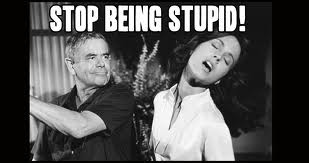What do you think?
Rate this book


256 pages, Hardcover
First published July 30, 2013
Laura felt uncomfortable. She hadn't said it out loud, but when she talked about an inner life she was worrying about herself: the gaping void she felt inside herself that she wanted to fill with something real, something good. Something she hadn't found at home. The larger life she had come here looking for.
"That's how you know its true love. When he can't live without you."
Karen shook her head. "That's how you know it's obsession. Or something else."


"Laura, this isn't love. Love lets you go on a trip without following you. Love can live without you for a week, knowing you'll come back."
"No, it can't." The afternoon shadows grew long and cold. In spite of the chill, a heat rose up inside her and flooded her face. "That's how you know it's true love. When he can't live without you."
Karen shook her head. "That's how you know it's obsession. Or something else."
"What's wrong with you lately?" Karen asked. "You've been so...reckless. You'll drop anything to see Alyosha. Like you don't care about anything else."
Laura faked a light laugh. "He's full-blooded Irish. Skip O'Rourke is his name. His ancestors came from, uh, Tipperary."(Note: If you're a security guard, be suspicious if only one person talks your entire encounter with said person, especially if said person tells the other person to shut up.
"Then I well go without [a mustache] too. For you."*INSTALOVE
For her! So Continental and un-American. So romantic.
The way he pronounced her name - Laoora, oo, oo - did something strange to her.*best friend who sticks to the rules unlike rebel MC/ is shallow/comic relief
She could see the bones of his face better. He looked younger, even younger than her was, but definitely more handsome.
"Where is the passion?" Laura moaned as the wind bit at her nose. "Where is the soul?... Where is the beauty?"*"Forbidden" romance
Is that what you came here for? I came for the wild punk rock scene. You think you're disappointed...." Karen stopped just outside the university gate. "I'm going to find a bakery or something. Loaf of black bread?
"You're not the only one who thinks she's in love. Some ballerina's got Dan wrapped around her bony little finger. Clara has fallen for a dissident folk singer, and Mark Calletti, the world's biggest geek, is in love with three different girls."
The Americans had been warned during orientation, before they'd even arrived in Leningrad, to beware of falling in loved. For most Russians, there was only one way to leave the Soviet Union, and that was to marry a foreigner.... "Be on guard," her chaperones had told them. "Don't fall for itbut Alexei is special
"Okay, it's a little suspricious. For everybody else. Alyosha is different